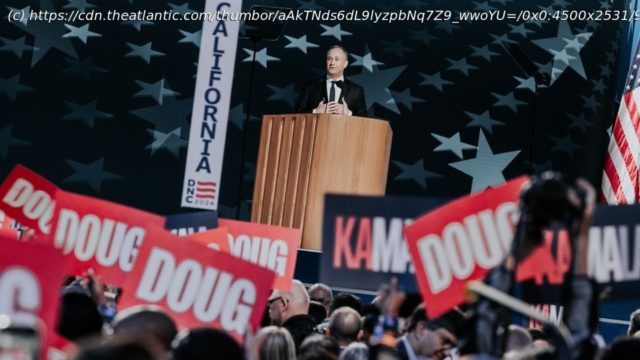Democrats try a new model of masculinity.
She’s everything. He’s just Doug.
Don’t take it from me—that’s his official title. Here at the United Center in Chicago, state delegates at the Democratic National Convention are given placards to wave during the speeches. The first night was dominated by We Love Joe and Union Yes!, interspersed with the campaign’s battle-cry: We Fight, We Win.
For the speech by the second gentleman, however, the signs simply read DOUG.
The politics of gender—and race—are the inevitable backdrop to this year’s convention. During the honorary roll call on Tuesday night, several delegates mentioned their pride at nominating a woman of color. During the speeches, Shirley Chisholm’s name was regularly invoked, as the first woman and first Black American to seek the presidential nomination from one of the two major parties. In the corridors of the United Center, delegates could buy sugar-pink “Madam President” T-shirts. “Sixty years ago, Fannie Lou Hamer came to this convention in 1964, and was denied entry to sit as a delegate, because she was a Black woman,” the actor Wendell Pierce, who came with the Louisiana delegation, told me on the convention floor. “To think that 60 years later, we just nominated a Black woman to lead the party, that is a tribute to that legacy.”
Yet Harris’s campaign has so far left it to others to present her as a history-making proposition, presumably because they think that the idea alienates some voters—and leaves many more unmoved. Let the right obsess about the cultural implications of rampaging, untameable hordes of childless women, the thinking seems to go, while we get back to talking about how Donald Trump is a convicted felon.






